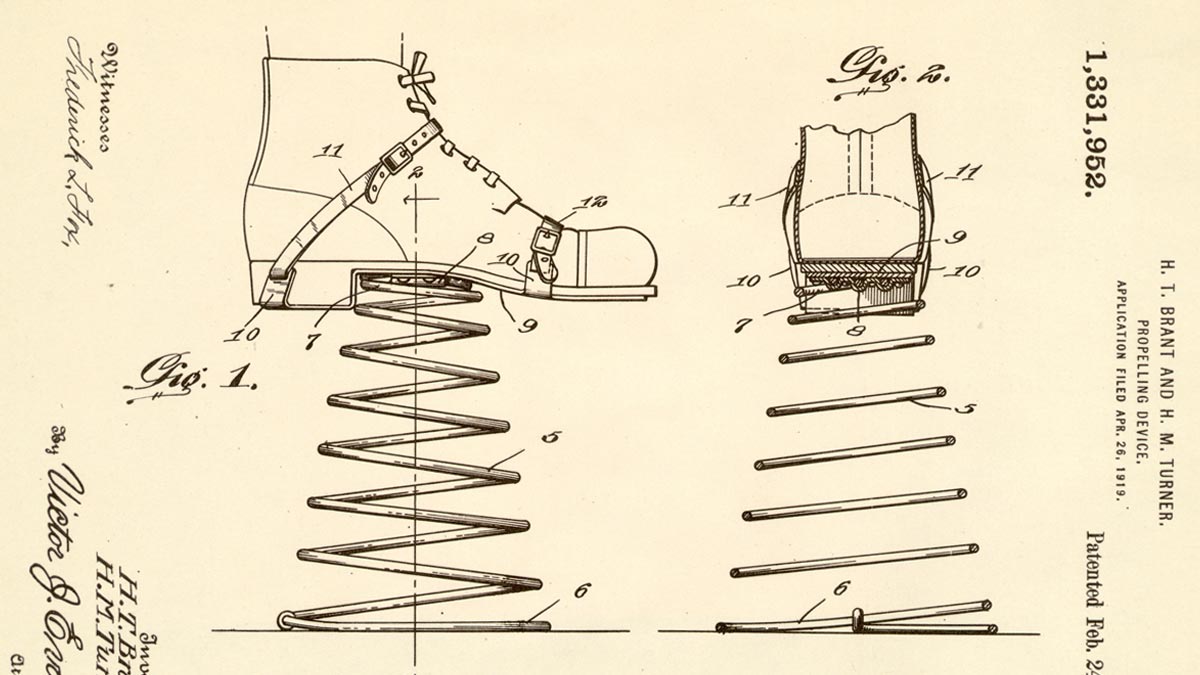… which says that the Innovation Act will stifle innovation, especially by smaller companies and individuals.
Category Archives: Uncategorized
What patent abuse is costing us …
… according to the Consumer Electronics Association, it’s $1.5B a week.
http://www.ce.org/Blog/Articles/2014/December/Enough-is-Enough-Patent-Abuse-is-Costing-Us.aspx
Congress to the rescue!!! (or not …)
There is proposed legislation – the Innovation Act of 2015 – which is being proffered as a way to address the “patent troll” problem. I’ll post some things about it. Here is an article from Harvard Business Review:
https://hbr.org/2015/03/why-congress-needs-to-pass-the-innovation-act-this-time
Patent Law and International Development (LDCs)
There is a list of countries within the World Trade Organization (WTO) which have been designated “Least Developed Countries” (LDCs) – those whose infrastructure is so weak or poverty so high that they cannot be held to the same international standard as the rest of the economically active nations.This causes friction in the area of patent law due to sometimes-necessary patent infringements in the fields of healthcare or development, for the sake of human lives. Multiple international organizations hold differing stances on the proper approach to these issues, but at present the WTO has accepted a waiver on holding LDCs accountable for various patent infringements, specifically those relating to pharmaceuticals. Recently, LDCs have requested that the waiver, instead of expiring and requiring renewal, be made indefinite – which essentially cuts any patent protection for pharmaceutical companies in LDCs, until such a time that any country is no longer considered on that list.
Full article: http://www.ip-watch.org/2015/02/25/wto-least-developed-countries-request-waiver-of-ip-rights-on-pharma-products/
For anyone who really wants to take a closer look, here’s a report from UNCTAD on exceptions to patent rights (not limited to pharma) in LDCs: http://unctad.org/en/Docs/iteipc200612_en.pdf
All Our Patent Are Belong To You
Last year Elon Musk announced in a blog post that his electric car company, Tesla, would permit anyone to use their patented technologies “in the spirit of the open source movement.”
“If we clear a path to the creation of compelling electric vehicles, but then lay intellectual property landmines behind us to inhibit others, we are acting in a manner contrary to that goal. Tesla will not initiate patent lawsuits against anyone who, in good faith, wants to use our technology.”
This was an interesting decision. I think that it may have more to do with trying to jump start an electric vehicle industry rather than help potential competitors or saving the world. Electric cars have such a small market share that I think this attempt to incentivize others to enter the industry would not markedly increase direct competition with Tesla, but against internal combustion cars in sectors of the market that Tesla doesn’t serve (everything but luxury).
Apple’s Innovation Drought
In light of our discussion about RIM’s failure to innovate, here is a short article Forbes arguing that Apple has not innovated since the iphone. Despite the record profits and stock price the companies long term health is questionable.
http://www.forbes.com/sites/petercohan/2015/04/01/stanford-lecturer-on-apples-innovation-drought/2/
“Since the iPhone, Apple has had no innovation. The iPad and all the versions of the iPhone since are variations on the same thing. The only interesting possibility for innovation is Apple Pay.”
Moreover, the article describes two types of CEO’s “opportunity-driven ones who transform organizations to seize new markets and operationally-driven ones who boost profitability and make a company’s numbers each quarter.” The article concludes with the author stating that Tim Cook seems to be operationally-driven.
Foreign Affairs: special interests are killing innovation
From Open to Closed: Open Source in the 3D Printing Industry
MakerBot, a 3D printing company, was an early adopter of an open source philosophy when it first began. However, like several other companies, MakerBot eventually transitioned backed to closed source and faced an outrage from its community.
Aside from the inability to assert one’s property rights on an invention, what are the other risks of engaging in open source? Does it seem right that a company could start as open source and then move to closed source as MakerBot did? What legal remedies, if any, could members of the open source community seek against MakerBot?
For those that are interested in 3D printing, there’s an a cool documentary on Netflix, entitled “Print the Legend,” that features MakerBot and discusses its history with open source.
… but can Blackberry survive?
It’s unclear at this point – nearly 9 years later.
http://money.cnn.com/2014/09/26/investing/blackberry-results/
An older article about the NTP/RIM settlement …
… from 2006.
